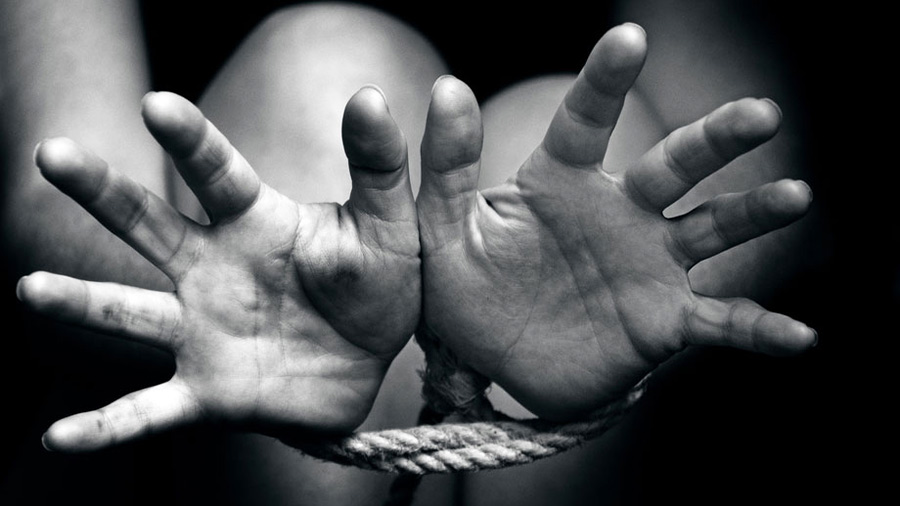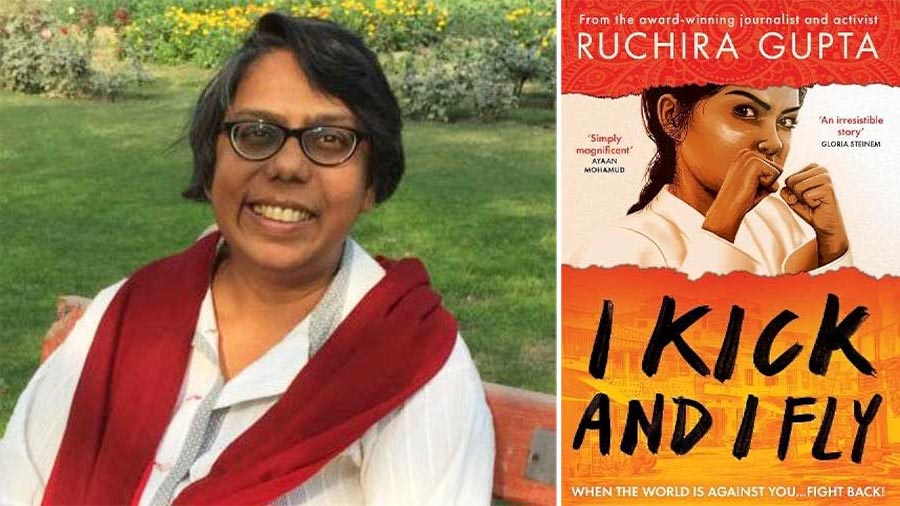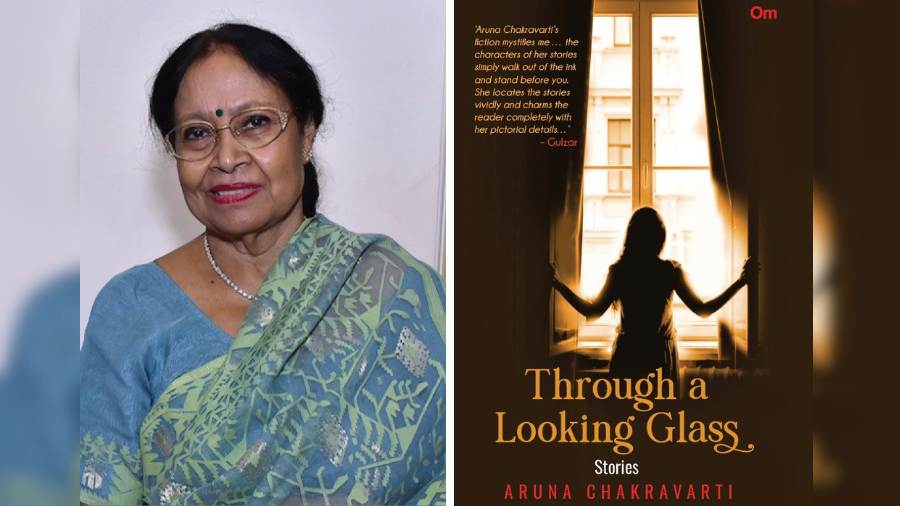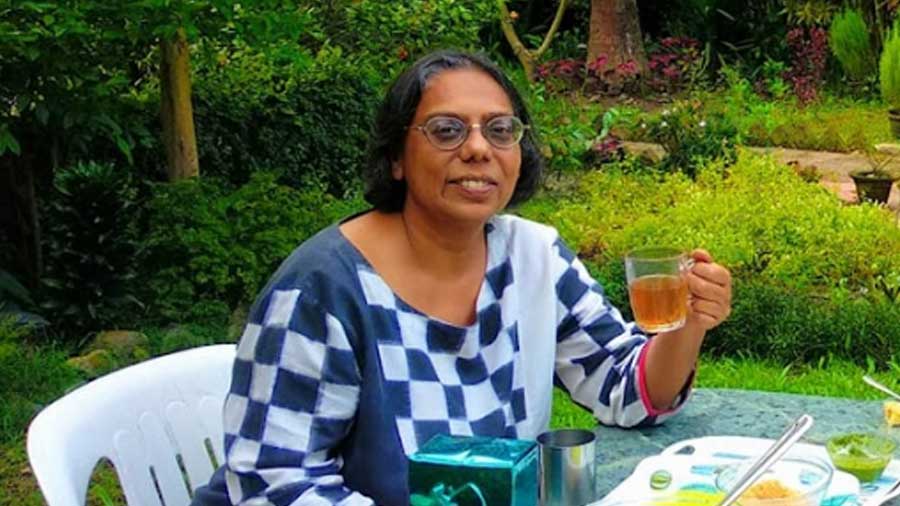Daruma dolls are a popular part of Japanese culture. Round, hollow and weighted at the bottom, they are seen as symbols of perseverance. No matter how often they are put down, their constitution is such that they spring back up. The same holds true for Heera, the 14-year-old protagonist of I Kick and I Fly (published by Rock the Boat), Ruchira Gupta’s debut novel, which alternates between despair and hope, between entrapment and escape. Like a Daruma doll, Heera is built to bounce back up regardless of the adversity that pins her down. As the founder of Apne Aap, an NGO which combats sex trafficking, Gupta knows better than most what girls and women undergo as part of the trappings of abuse. Gupta uses this knowledge as well as her experience as a social justice activist, feminist campaigner and journalist to create a revelatory journey for Heera, which says as much about the courage of her teenage protagonist as it does about the depraved nature of patriarchy in India.
The most she can do is delay, but not deny, the inevitable
According to India’s National Crime Records Bureau (NCRB), over 6,500 trafficking victims were identified in 2022, out of which 60 per cent were girls and women. What appears alarming from this data feels inevitable in Heera’s world in Forbesganj, on the outskirts of Bihar. Hailing from an impoverished family in the Nat community, Heera is repeatedly told that her destiny is to be sold off by her father into sex work. The most she can do is delay, but not deny, the inevitable. She has already seen her cousin Meera di resign to her fate, and in a society where abuse is the currency of power, she has no way out. The moment Heera comes of age in the eyes of the patriarchs who ‘control’ her, she will become another ‘entertainer’. Till then she can try and scrape her way through school, where a few nasty boys do not have any qualms in reminding her of her place.
But Heera is a rebel at heart. Even if she is mortified at the thought of saying no to her father and his honcho, a conscienceless Ravi Lala, she is not one to quietly accept her lot. Spurred on by a supportive brother and a mother who fights tooth and nail to protect her, Heera manages to survive one day at a time. A turning point arrives when she discovers kung fu and starts practising under the tutelage of Rini di in school. Learning martial arts and reading the words of Bruce Lee allow Heera to expand her imagination and dream of an alternative future for the first time. A future where her family has a proper home, where her dignity is not put on sale and where she can find her best friend, Rosy, who seems to have been lost or kidnapped or both.
Avoiding the common mistake of overdosing a minor with either idealism or cynicism

Heera fights off a life of sex trafficking by behaving like water, assuming the shape of whatever situation she finds herself in
In making this imagination a reality, Heera is helped at multiple points by Rini di, whose angelic presence in the former’s life acts a necessary antidote to entrenched discrimination. Rini di trains Heera to be a champion at kung fu, with Heera’s victories earning money as well as pride for her beleaguered family. The biggest victory of them all arrives when Heera gets selected to go on an exchange programme to New York, where her kung fu skills are supposed to meet their toughest test. Once in New York, Heera not only excels at kung fu but also manages to locate and rescue Rosy thanks to an action set-piece that would have made Bruce Lee proud. Even though Heera courts danger at every step, a mixture of chutzpah, intuition and good luck bails her out every time. Having learnt to control her body and mind through kung fu, Heera understands what it takes to control her destiny. From an unnerved schoolgirl in Bihar, she gradually transforms into a role model for her hometown in NYC, escaping the predicament she had been born into while taking her family along with her.
In portraying Heera, Gupta does not make the common mistake of overdosing a minor with either idealism or cynicism. For the most part, Heera, as she keeps telling herself, behaves like water, assuming the shape of whatever situation she finds herself in. In doing so, she retains the innocence that is inherent in adolescence, which is what prevents her from becoming self-righteous or believing blindly in her own indestructibility. The fact that Gupta chooses to narrate the story entirely from Heera’s perspective means that Heera often comes across as more sensitive and nuanced than people her age are supposed to be. But, to Gupta’s credit, Heera’s maturity does not feel jarring. Instead, it only reiterates her position as an outlier. In keeping with her name, Heera is very much a diamond in the rough.
Another of Gupta’s strengths as a fiction writer is the setting of mood and atmosphere. In a genre that always carries the risk of becoming more Dickensian in its doom and gloom than Dickens himself, Gupta balances out the sordidness with gentle moments of everyday humour and tenderness. It helps that a woman (Gupta) is writing on behalf of women (Heera, Rini di, Heera’s mother, among others), aware of all the shades of femininity that constitute the spectrum between fierceness and fragility. The arc that Gupta builds for the character of Heera’s father is also impressive. Without ever condoning or condemning him, Gupta traces the moral growth of a man whose identity had been imposed upon him. It is only with Heera’s own development that her father can blossom into the caregiver he is supposed to be.
The courage to hope, the courage to plan and the courage to execute
The only shortcomings of the book are the unresolved questions pertaining to some of the supporting cast — how did Rini di become as impeccable as she did, what happens to Rosy now that the worst seems to be behind her, will Ravi Lala find it in him to have remorse, even repentance for his sins? None of these questions is central to the fundamental narrative, but they are the sort whose resolution can accentuate a story with mini epiphanies that make the reading experience richer.
As a champion of fairness, justice and equitability, Gupta is among the most eloquent voices in India today. By making Heera the touchstone of her values in her novel, Gupta shows that actions can be just as eloquent as words. That escape from the chains of sex trafficking requires the courage to hope, the courage to plan and the courage to execute. But not everyone is equipped to have all kinds of courage, which is where a support system becomes indispensable. It is not Gupta’s goal to anoint Heera as a heroine, as the sort to blaze a trail and generate a revolution. Rather, Gupta succeeds because she establishes that Heera is human and that her humanity is reason enough for her to kick and fly.


